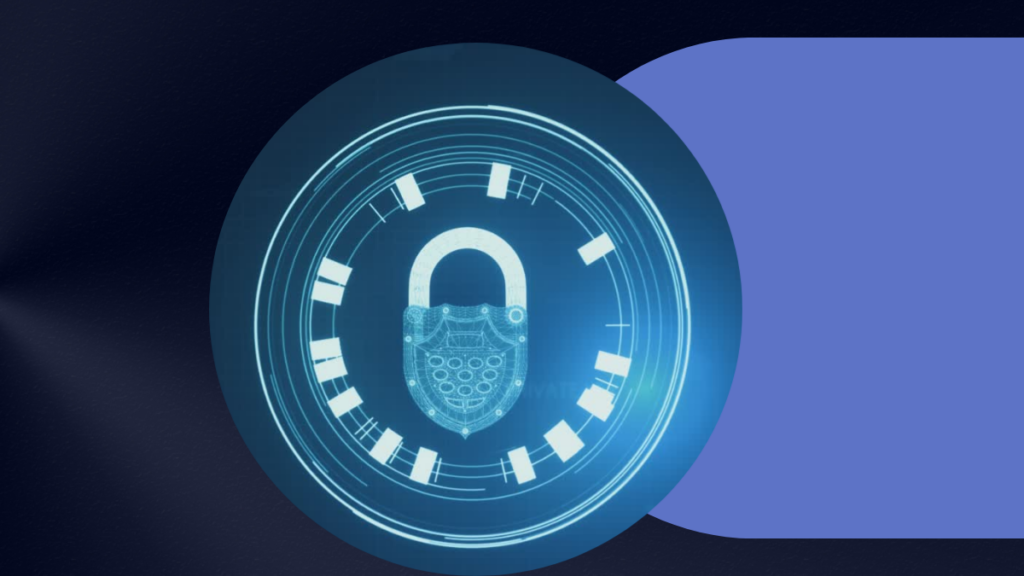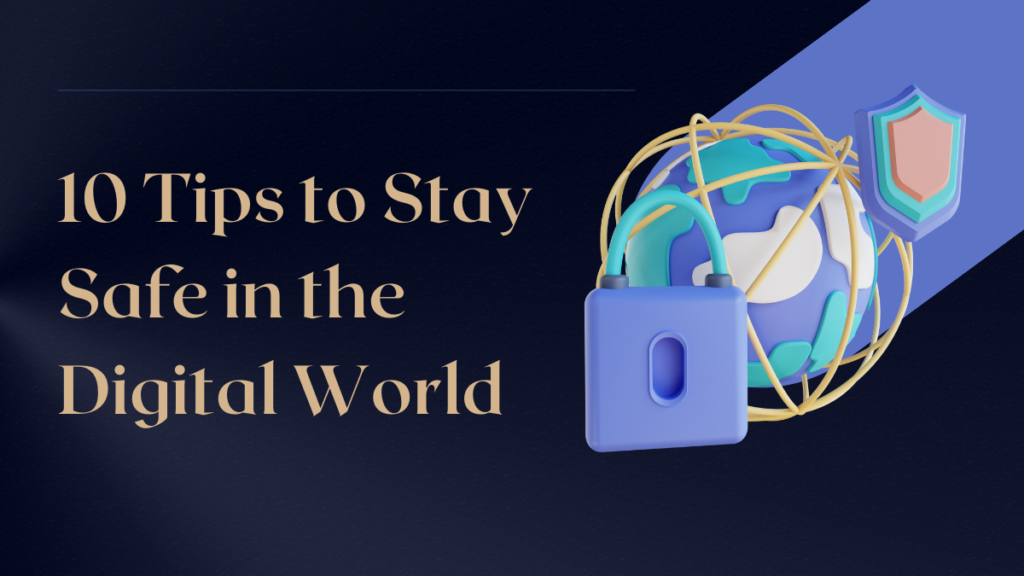The digital age has revolutionized the way we live, work, and communicate. With the rapid growth of technology and the increasing reliance on the internet, online security has become a critical aspect of our daily lives. Cybercriminals constantly seek ways to exploit vulnerabilities and gain access to sensitive information. Therefore, it is essential to understand the importance of online security and adopt measures to protect ourselves from potential threats.
This blog post will discuss the importance of online security and share ten tips to stay safe online.
The Importance of Online Security
Identity Theft: Cybercriminals can use your personal information to steal your identity and commit fraudulent activities under your name. This can lead to financial losses, damage to your credit score, and even legal consequences. Ensuring online security can help prevent identity theft and safeguard your reputation.
Financial Security: Online banking, shopping, and other financial transactions have become commonplace. However, these activities expose you to the risk of financial theft, such as unauthorized access to your bank accounts or credit card information. Prioritizing online security can protect your financial assets and prevent financial losses.
Privacy Protection: Your online activities leave a digital footprint that can reveal much about your personal life, interests, and habits. This information can be misused by hackers, advertisers, and even governments to track or manipulate you. Online security measures can help protect your privacy and ensure your personal information remains confidential.
Business Security: Businesses of all sizes increasingly rely on the internet for various operations, from communication and data storage to financial transactions. A security breach can result in significant financial losses, damage to the company’s reputation, and loss of customer trust. Ensuring online security is vital for the success and longevity of any business.
10 Tips to Stay Safe Online
Let’s explore ten tips to stay safe online.
Use Strong and Unique Passwords
Using strong and unique passwords for each of your accounts is crucial for keeping your personal information and accounts protected. Don’t use easy-to-guess passwords, like “your name” or “123456”. Instead, create a strong password by combining upper and lowercase letters, special characters, numbers, and symbols. It’s also important to use a different password for each account to prevent hackers from accessing multiple accounts if they manage to crack one password. A password manager can help generate and securely store strong passwords for you.
Enable Two-Factor Authentication
Two-factor authentication is an extra layer of security you can add to your accounts by requiring a code and password. This code is typically sent to your phone or email, so it’s important to keep your contact information up-to-date. By enabling two-factor authentication, even if a hacker manages to guess or steal your password, they still won’t be able to access your account without the code.

Keep Your Systems and Software Up-to-Date
Keeping your software and operating system up-to-date is important for several reasons, including security. Software and system updates usually include security patches that address vulnerabilities that hackers could exploit to gain access to your system or data. Regularly checking for and installing updates can help keep your devices and data safe.
Use Antivirus Solution
Antivirus software helps protect your devices from viruses and malware that could compromise your security. Make sure to choose a reputable antivirus program and keep it up-to-date to ensure that it’s able to detect and prevent the latest threats.
Be Cautious to Suspicious Emails and Links
Hackers often use phishing emails or links to trick people into giving away their personal information. Be wary of emails or links that seem too good to be true, or that ask for personal information such as your password or credit card number. Always check the sender’s email address and hover over links before clicking on them to ensure they are legitimate.
Use Secure Connections
When using public Wi-Fi, be cautious about what you do online as these networks can be insecure and susceptible to hacking. Avoid logging into sensitive accounts on public Wi-Fi networks, such as banking or social media. Instead, use a VPN to create a secure tunnel for your internet traffic and keep your online activity private and safe.
Be Careful about What You Share Online
Be mindful of what personal information you share online, as hackers can use this information to steal your identity or access your accounts. Avoid sharing your full name, address, phone number, or other sensitive information publicly online.
Backup Your Data
Backing up your data is important in case of data loss due to a security breach, hardware failure, or other issues. Make sure to regularly backup your important files to a drive or cloud service like Google Drive to ensure that you can recover your data if necessary.
Use Privacy Settings
Many apps and websites collect data about your online activity. It’s essential to review and adjust your privacy settings to limit the amount of data that is collected about you. You can also use browser extensions and other tools to block tracking cookies and prevent companies from tracking your online activity.
Educate Yourself and Stay Vigilant
Stay informed about the latest security threats and best practices for staying safe online. Read up on the latest scams and tactics hackers use, and take steps to protect yourself. By staying vigilant and taking proactive steps to protect your online security, you can reduce the risk of falling victim to a cyber attack.

